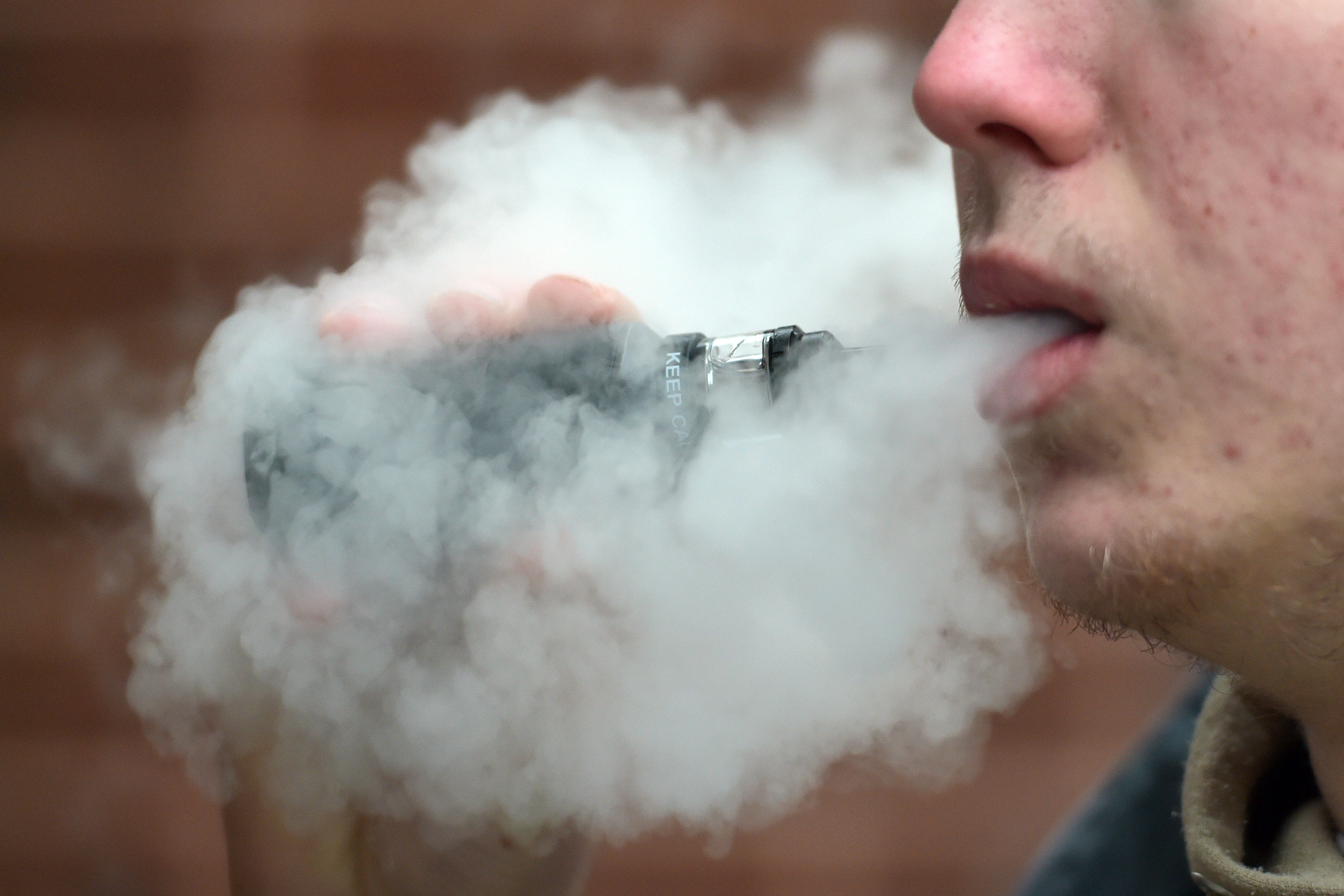‘Steep rise’ in young adults vaping for longer than six months
Researchers also pointed to an increase in the number of people who vape who have never regularly smoked cigarettes.

Your support helps us to tell the story
As your White House correspondent, I ask the tough questions and seek the answers that matter.
Your support enables me to be in the room, pressing for transparency and accountability. Without your contributions, we wouldn't have the resources to challenge those in power.
Your donation makes it possible for us to keep doing this important work, keeping you informed every step of the way to the November election

Andrew Feinberg
White House Correspondent
There has been an “exceptionally steep rise” in the number of young adults in England vaping for six months or longer in the last decade, a study has found.
Researchers suggested this could be down to a rise in the popularity of disposable e-cigarettes.
The number of people using e-cigarettes who never regularly smoked tobacco has also increased.
For the study, academics from University College London (UCL) surveyed 179,725 adults between 2013 and 2023.
The proportion of adults who reported long-term vaping – for a period of longer than six months – jumped from 1.3% to 10% during the period, with researchers pointing to a “particularly pronounced rise” from 2021.
Our results show there has been an exceptionally steep rise in the number of young adults vaping for more than six months since new disposable e-cigarettes were introduced to the market
Researchers suggested that the jump coincided with a rise in the popularity of disposable vapes, which they said are used “mainly or exclusively” by half of long-term vapers.
Long-term vaping was more common among people with a history of smoking cigarettes.
The proportion of current smokers who vaped jumped from 4.8% to 23.1%, while 36.1% of people who had recently given up cigarettes used e-cigarettes compared to 5.7% a decade earlier.
However, since 2013, the proportion of people using vapes who had never smoked cigarettes increased from 0.1% to 3% in 2023.
There was also a rise in e-cigarette use among younger adults.
Dr Sarah Jackson, of UCL, said: “Our results show there has been an exceptionally steep rise in the number of young adults vaping for more than six months since new disposable e-cigarettes were introduced to the market.”
The study found 22.7% of 18-year-olds vaped, including 16.1% who had never regularly smoked, compared to 4.3% of 65-year-olds, 0.1% of whom had never regularly smoked.
Dr Jackson added: “In addition to helping people quit smoking, vaping is probably diverting some people away from ever starting to smoke, which will reduce their exposure to harmful toxicants.
“However, it is likely that a growing number of adults who vape would not have otherwise smoked. For these people, vaping regularly over a sustained period will expose them to more harm than if they had neither smoked nor vaped.”
Hazel Cheeseman, deputy chief executive of public health charity Action on Smoking and Health (Ash), said: “A growth in longer term vaping presents risks and opportunities for improving public health.
“On the one hand young people who have never smoked taking up vaping and sticking with it is a cause for concern.
“On the other hand, where smokers are switching to vaping, and this prevents them from going back to smoking, this is good news for their health.”
It comes as Labour revived plans to phase out smoking and impose restrictions on the sale and marketing of vapes to children.
The Tobacco and Vapes Bill will progressively increase the age at which people can buy tobacco so anyone born after January 1 2009 will not be able to legally do so.
It also paves the way for reforms to vaping sales and branding to reduce their appeal to children, such as restrictions on flavours, packaging and displays.
Professor Jamie Brown, also of UCL, said new policies aimed at curbing youth vaping “must be balanced to avoid discouraging smokers from using vaping products to quit smoking”.
“Policies most likely to achieve this balance may be those focused on retail displays, appealing product design and packaging, product descriptions and cost,” he added.
Subscribe to Independent Premium to bookmark this article
Want to bookmark your favourite articles and stories to read or reference later? Start your Independent Premium subscription today.